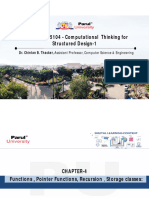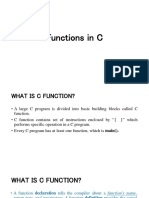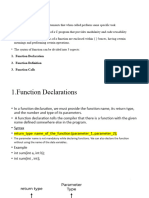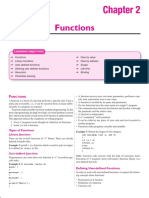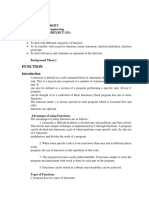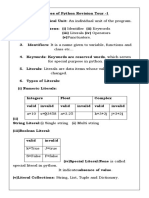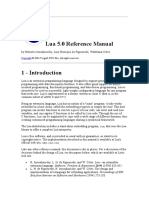0% found this document useful (0 votes)
77 views35 pagesC Functions and Recursion Guide
The document discusses user-defined functions and recursion in C programming. It defines a function as a block of code that runs when called, and can accept parameters. There are two types of functions: library functions (predefined) and user-defined functions. User-defined functions allow breaking large programs into smaller segments. Recursion is when a function calls itself, and can be used to iteratively solve problems like adding a range of numbers by breaking it down into simpler additions.
Uploaded by
Robiul IslamCopyright
© © All Rights Reserved
We take content rights seriously. If you suspect this is your content, claim it here.
Available Formats
Download as PPT, PDF, TXT or read online on Scribd
0% found this document useful (0 votes)
77 views35 pagesC Functions and Recursion Guide
The document discusses user-defined functions and recursion in C programming. It defines a function as a block of code that runs when called, and can accept parameters. There are two types of functions: library functions (predefined) and user-defined functions. User-defined functions allow breaking large programs into smaller segments. Recursion is when a function calls itself, and can be used to iteratively solve problems like adding a range of numbers by breaking it down into simpler additions.
Uploaded by
Robiul IslamCopyright
© © All Rights Reserved
We take content rights seriously. If you suspect this is your content, claim it here.
Available Formats
Download as PPT, PDF, TXT or read online on Scribd
/ 35











